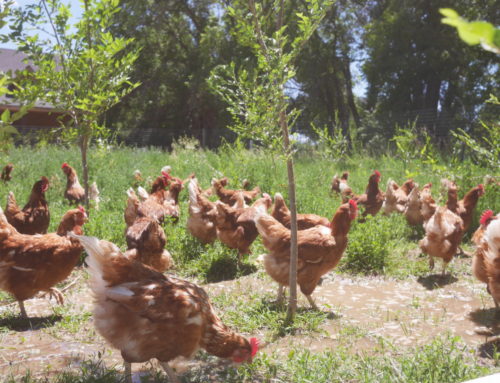Right above Hotchkiss on Hanson Mesa, Mark Waltermire runs Thistle Whistle Farm. On sixteen acres, Mark raises a wide array of vegetables and fruit, plus a wiley herd of goats, a motley flock of free ranging chickens and ducks, and a few buzzing hives of bees.
In addition to growing food, Thistle Whistle is cultivating a new generation of kids interested in food, nutrition, and sustainable farming. Since the beginning, Mark has been dedicated to integrating education into the farm’s operation. Every year Mark leads farm tours, hosts on-farm nutrition and ESL programs, teaches seed saving to local elementary school student, mentors student gardeners at Western State University, and hires a crew of interns interested in learning how to farm. “Honestly, I feel pretty blessed to have a farm like this, and I feel and obligation to share it.” It is rewarding to work with enthusiastic young people that still hold on to their ideals, he says. “I use their energy to keep myself going.”
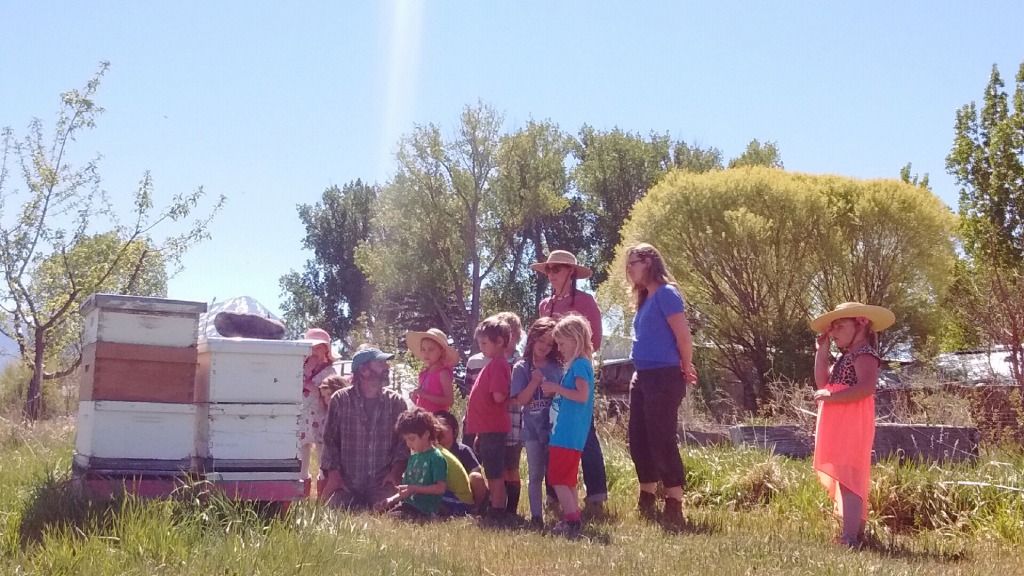
Before moving with his family (wife, Katie Dean, and two sons, Baxter and Graham) to Hotchkiss 12 years ago, Mark ran an educational and food bank farm in Massachusetts. It was there, working with various ethnic groups that he was exposed to different crops and varieties that the typical American farmer and shopper never see. The folks he worked with and served were looking for flavors of home that couldn’t be found on supermarket shelves. “It opened my eyes to the potential of what food should be”
Out of this experience, Mark has developed a style of farming that is distinctly focused on preserving food traditions, rather than maximizing profit. If you’re looking for weird, rare, fun, and interesting flavors, Mark’s your guy. “I’m not willing to accept the standard of high volume and no flavor;” he says, “we can create markets for better tasting stuff.”
A diverse mix of crops and varieties matters a lot to Mark. He grows just about everything, from artichokes to heirloom popcorn. It is ecologically sound farming principle, but it also connects us to our cultural backgrounds and genetic dispositions. We’re programmed to appreciate a diversity of flavors, because different flavors – different plants – provide different nutrients that keep us healthy.

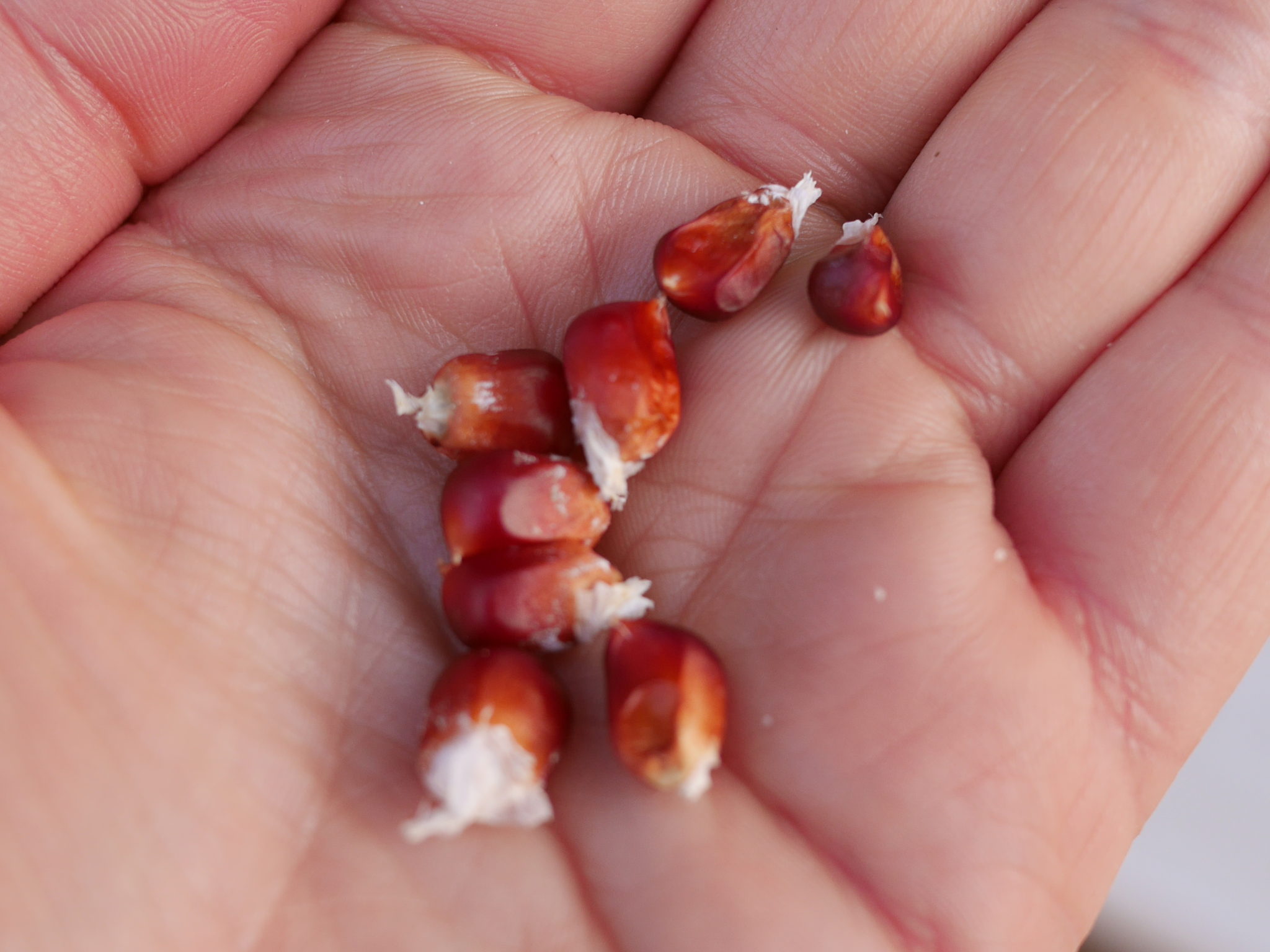
Mark can’t pick one favorite crop, but he’s drawn to anything with a story. Around these parts, Mark is known as the hot pepper guy. His passion for a host of interesting (and mouth-scorching) peppers comes partly from the connection each one has to a particular culture and particular use. Plus, he just loves the power contained in each tiny fruit. Tomatoes are another one of Thistle Whistle’s specialities. For Mark, each tomato is connects him to a dedicated individual seed breeder, whose passion comes through in a stunning visual and flavor array in the tomato field.
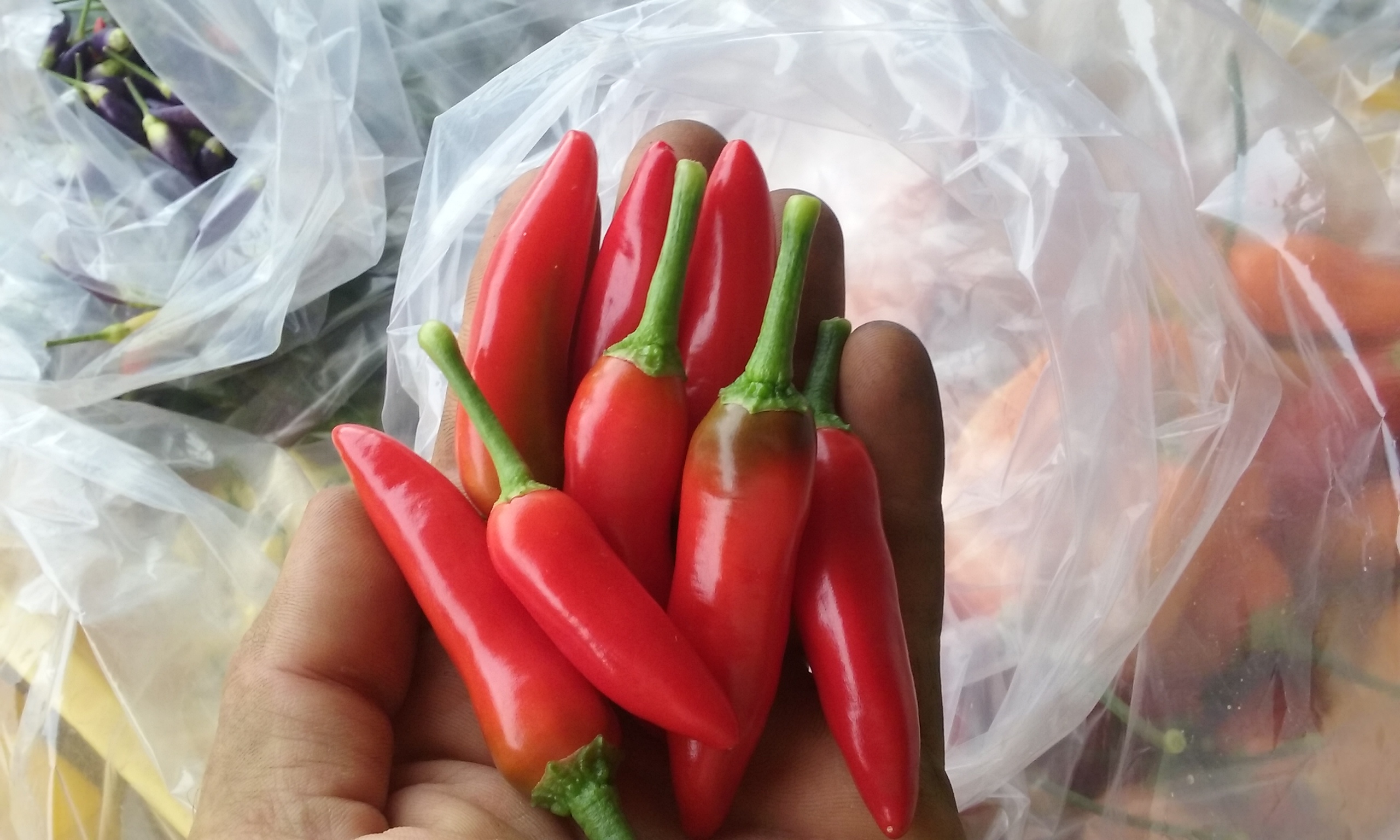
If you’re looking for a new veggie to try this winter, Mark suggests giving the Gilfeather Turnip a chance. It’s a veggie with a good story (synopsis: it’s a cross between a turnip and a rutabaga bred by John Gilfeather in the early 1900s, and was recently adopted as the state vegetable of Vermont), and it’s allure is coupled with the fact that they’re really really good eatin’.
The other crop Mark suggests getting your hands on this winter is the Sunchoke. It’s one of the few native North American food crops, which brings another meaning to the words “eat local.”


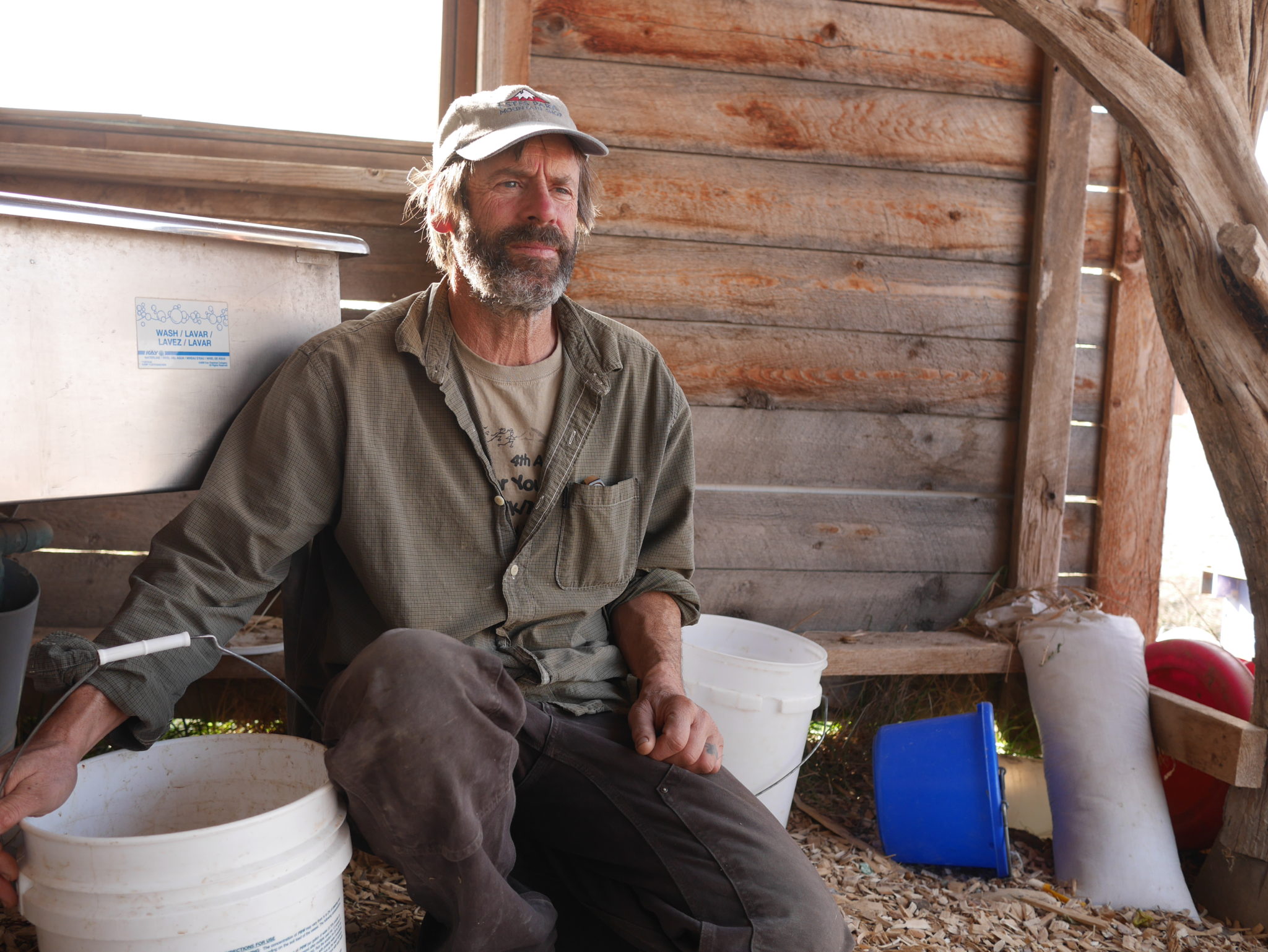

![Farmers in Focus: Zimmerman Pork [and veggie] Farm](https://farmrunners.com/wp-content/uploads/2017/05/p1840797-e1679522915634-500x383.jpg)
